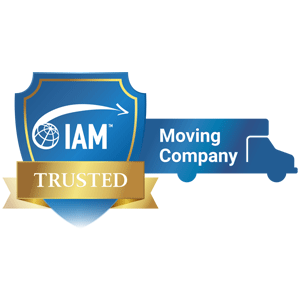
Creating a Strategic Storage Plan
for Your Business
In the dynamic and competitive domain of modern business, the significance of a well-crafted strategic storage plan for your business cannot be overstated. This essential component of business operations goes beyond mere organization of space; it’s about ensuring operational efficiency, enhancing productivity, and preparing your business for scalable growth. In this extensive guide, we will explore the multifaceted approach to developing an effective storage strategy tailored to your business’s unique needs and growth trajectory.
Assessing Your Current Storage Needs
Evaluating Your Current Storage Capabilities
The journey toward an optimal storage plan for your business begins with thoroughly evaluating your current storage system. Assessing how well your current storage space is being utilized is essential. Are there areas where space is being wasted or could be better used? Does your current setup efficiently support your operational workflow? Understanding the strengths and weaknesses of your existing storage system is crucial for identifying areas of improvement. This step is about identifying the need for more space and optimizing the use of existing space.
Anticipating Future Storage Requirements
An effective storage plan is forward-looking, anticipating the future needs of your business. As your company grows, your storage needs will evolve. This could mean a requirement for additional space, different types of storage solutions, or more agile and accessible storage methods. Assessing future requirements involves understanding your business growth projections, market trends, potential product line expansions, and even seasonal fluctuations in business activity. Know that having a storage space that can adapt to these changing needs is vital for ensuring long-term operational efficiency and business agility.
Exploring Storage Solutions
Selecting the Right Storage Options
When exploring storage solutions, it’s important to consider various factors to ensure you choose the right option for your business. This can range from traditional physical storage spaces, like warehouses, to more modern digital solutions, such as cloud storage. Each has its advantages, depending on your specific business needs. For instance, a traditional warehouse may be necessary if you have a significant amount of physical inventory. In such cases, aspects like location, accessibility, and security become paramount. Interestingly, insights from various industry players, like those from Professional Movers Canada, highlight the importance of strategic positioning of physical storage facilities.
This is especially relevant if frequent access to your inventory is necessary or if you plan regular transitions of goods. Their experience in the field shows that strategically located storage facilities can significantly reduce transit times and costs, enhancing overall operational efficiency. As for digital storage options, factors like data security, scalability, and cost must be carefully weighed. Cloud storage, for instance, offers great flexibility and can be a boon for businesses with growing digital needs.
Logistical Considerations in Storage Strategy
When developing a storage plan, one often overlooks the logistical challenges involved in the physical management of inventory or equipment. It’s not just about where to store your assets but also how to move them when necessary efficiently. This is where the expertise of professional moving services becomes invaluable. Also, movers can ensure a smooth relocation, facilitating the transition of goods from one location to another, whether within the same city or across greater distances.
Their knowledge and experience in handling logistics can be a significant advantage, especially during expansion or restructuring. They understand how to manage the complexities of packing, handling, and transporting various types of goods, which is crucial for minimizing downtime and safeguarding your assets during the move. By integrating professional moving services into your storage strategy, you ensure that the logistical aspects of your storage plan are handled with the same level of professionalism and efficiency as the rest of your business operations.
Case Studies: Successful Storage Implementations
Delving into case studies and real-world examples of successful storage solutions provides valuable insights. These studies reveal how businesses in various industries have tackled storage challenges and implemented effective solutions. Whether a small business optimizing limited space or a large corporation employing complex warehouse logistics, these examples can offer practical insights and innovative approaches. Such case studies not only inspire but also provide a framework that can be adapted and customized to meet the specific storage needs of your business.
Integrating Technology into Storage Strategies
Harnessing Technology for Efficient Storage
The integration of technology in storage strategies can significantly enhance efficiency and security. Modern solutions like automated inventory systems and cloud-based storage can revolutionize how businesses manage their storage needs. Automation streamlines inventory tracking, reducing errors and improving efficiency. Cloud storage offers unparalleled flexibility and scalability, which is crucial for companies experiencing growth or fluctuating storage needs. However, integrating technology into your storage plan requires careful consideration, including assessing compatibility with existing systems, potential staff training needs, and ensuring robust data security measures are in place.
Benefits of Technological Integration
Adopting technology in your storage plan offers numerous advantages. Automated systems can drastically reduce manual errors, streamline inventory management, and enhance overall operational efficiency. Cloud storage provides easy access to data, robust backup and recovery options, and the flexibility to scale storage resources according to business needs. Embracing these technological solutions can lead to significant cost savings and operational improvements, making your business more competitive and agile.
Developing a Long-term Storage Maintenance Plan
Ensuring Consistent Review and Adaptation
A successful storage strategy requires regular reviews and updates to stay effective. This involves not only evaluating the efficiency of your storage solutions but also preparing for major business changes. For instance, office relocation is a source of stress for many businesses, and having a well-maintained storage plan can significantly ease this transition. By consistently updating your strategy, you can ensure that your company is prepared for such changes with minimal disruption to operations. This includes staying informed about the latest storage technologies and trends and adapting your strategy to meet evolving business needs. Regular maintenance and proactive adjustments of your storage systems are critical in identifying and preemptively addressing potential issues, making transitions like office relocations smoother and less stressful.
Preparing for Business Transitions
Anticipate potential scenarios such as office relocations, which can be a significant source of stress. A robust storage plan should include strategies for managing these transitions smoothly. This involves planning for the logistical aspects of moving, ensuring the security and integrity of data and inventory during the transition, and striving for minimal operational downtime. Such preparedness for moving is crucial for maintaining business continuity and minimizing disruption during times of change.
Conclusion
In conclusion, a strategic storage plan for your business is critical in maintaining operational efficiency and gearing up for future growth. This extensive guide outlines the steps and considerations for developing a storage solution that meets your current needs and is adaptable and scalable for future business challenges. An effective and flexible storage strategy is an indispensable component in your business’s long-term success and scalability.


























